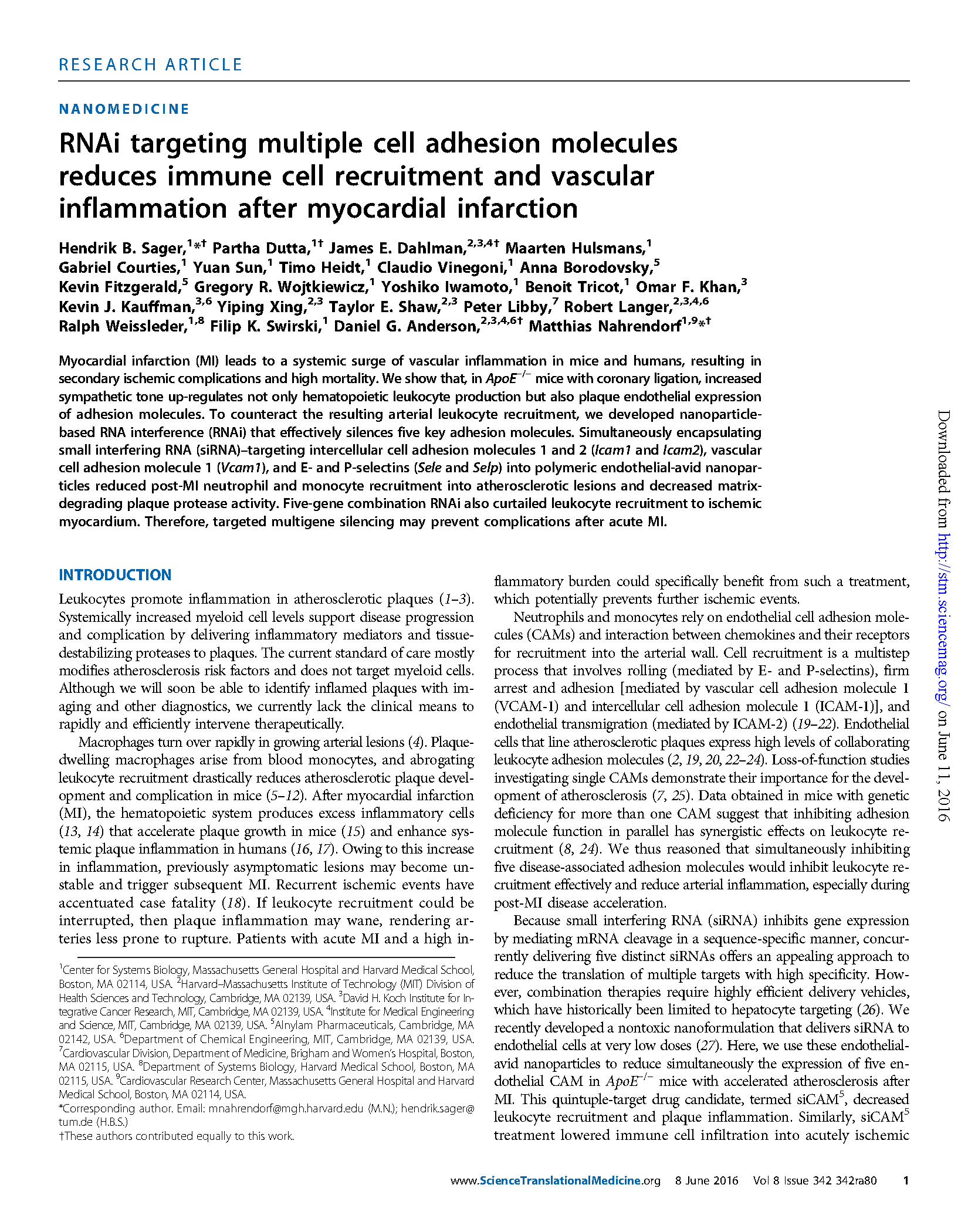RNAi targeting multiple cell adhesion molecules reduces immune cell recruitment and vascular inflammation after myocardial infarction
Science Translational Medicine
Abstract
"Myocardial infarction (MI) leads to a systemic surge of vascular inflammation in mice and humans, resulting in secondary ischemic complications and high mortality. We show that, in ApoE(-/-) mice with coronary ligation, increased sympathetic tone up-regulates not only hematopoietic leukocyte production but also plaque endothelial expression of adhesion molecules. To counteract the resulting arterial leukocyte recruitment, we developed nanoparticle-based RNA interference (RNAi) that effectively silences five key adhesion molecules. Simultaneously encapsulating small interfering RNA (siRNA)-targeting intercellular cell adhesion molecules 1 and 2 (Icam1 and Icam2), vascular cell adhesion molecule 1 (Vcam1), and E-and P-selectins (Sele and Selp) into polymeric endothelial-avid nanoparticles reduced post-MI neutrophil and monocyte recruitment into atherosclerotic lesions and decreased matrix-degrading plaque protease activity. Five-gene combination RNAi also curtailed leukocyte recruitment to ischemic myocardium. Therefore, targeted multigene silencing may prevent complications after acute MI."
Full citation
For attribution in academic contexts, please cite this work as:
| Sager, H. B., Dutta, P., Dahlman, J. E., Hulsmans, M., Courties, G., Sun, Y., Heidt, T., Vinegoni, C., Borodovsky, A., Fitzgerald, K., Wojtkiewicz, G. R., Iwamoto, Y., Tricot, B., Khan, O. F., Kauffman, K. J., Xing, Y. P., Shaw, T. E., Libby, P., Langer, R., … Nahrendorf#, M. (2016). RNAi targeting multiple cell adhesion molecules reduces immune cell recruitment and vascular inflammation after myocardial infarction. Science Translational Medicine, 8(342), 11. https://doi.org/10.1126/scitranslmed.aaf1435 |

Sager, H. B., Dutta, P., Dahlman, J. E., Hulsmans, M., Courties, G., Sun, Y., Heidt, T., Vinegoni, C., Borodovsky, A., Fitzgerald, K., Wojtkiewicz, G. R., Iwamoto, Y., Tricot, B., Khan, O. F., Kauffman, K. J., Xing, Y. P., Shaw, T. E., Libby, P., Langer, R., … Nahrendorf#, M. (2016). RNAi targeting multiple cell adhesion molecules reduces immune cell recruitment and vascular inflammation after myocardial infarction. Science Translational Medicine, 8(342), 11. https://doi.org/10.1126/scitranslmed.aaf1435